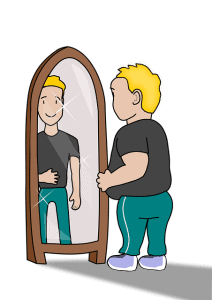What is your target audience? This is a question for every firm and person doing business. That is why certain people cannot date certain people, such as, why can’t a lead date a religious marketer? Because she/he will always try to convert him/her. I mean some people realise after the big mistake, such as the reasons why marketing couples don’t get married? It’s often because they’re not on the same landing page.
Hey, don’t thank me for the sense of humour, I’m just trying to do a great job at researching writer’s jokes while I make this read entertaining and educational at the same time.

What is your target audience? This question, writers (journalists, authors, content creators), companies creating perishable and non-perishable goods, technology (hardware and software), products, and everything that is literally being created right now or being sold right now is the question manufacturers/creators ask.
The thing is to remain in the field/career that a person has chosen for a long time, they have to be passionate about what they’re creating and why. This is often the reason why firms and individuals who really drill down on what is your target audience are the ones who truly succeed, but to ask the question first and then create the product just for the sake of making money, is the perfect recipe for a NON-sustainable product unless there’s a person who is very passionate behind it.
What is your story?
Whether a person is writing a book, creating a product or a service they usually tend to have a story behind it. What is that story? Chances are, to find what is your target audience the answer lies in the story behind why you are affiliated to the product, service or why it was created in the first place. The pain in that story leads you to find what is your target audience because your target audience has the same pain or similar, and now it’s the question of finding all these people with similar pain points or where they’re hanging out. Trust me, these days they won’t be hanging around at the bar next to the cobbler or the technician. Those days are long gone. They won’t be hanging around the recording studio like Madonna did in her car (if that is true or not, only she would know).
 1) The persona or the avatar
1) The persona or the avatar
What is your target audience? This is where it begins. Draw up the persona/avatar that is similar to you, the reasons why you think this product, item, book or service needs to be purchased and what it can do for the person purchasing it. Remember, what it can do for others, will it solve their problem? Not will it solve my problem? Can it solve their problem? Can it make them aware of the problem that they possibly did not see or paid attention to? Then it’s time to zoom in on the next points to find out what is your target audience.
 2) Demographics
2) Demographics
The following fall under demographics:
- Sex
- Income
- Marital status
- Social class
- Age
- Race
These are the outer layers, the obvious layers which present to us in our everyday life whether we’re meeting people online or in person. It helps us begin a conversation, or at least try and place some things in context when we meet people for the first time, and for a firm or individual, it’s all-important elements to what is your target audience so that with time one can identify where most of their clients are coming from and where to focus their targeting.
3) Psychographics
What is your target audience and why do psychographics play a very important role? We sell human to human and for people to buy from people we have the same or most qualities such as:
- Emotions
- Interests
- Opinions
- Values/beliefs
- Affiliation
This places you (an individual or firm) in a position to identify what is your target audience. Together the demographics and psychographics place a person in their avatar/persona’s shoes so that they may see things or sell the book, product, or item from those perspectives. (This is not manipulation; this is sales, and this is the part that most people who judge salespeople miss, and this is the part where salespeople can also go overboard in their craft which leads to why people judge salespeople).
Sometimes it’s better to start with the niche (go small and grow) than to go big which is what most tend to do.
4) The typical person who the book, product or service will appeal to
Do you have at least 1 ideal customer that can lead to further answers on what is your target audience? All you need is that 1 person, not a friend, family member or a forced test subject. That 1 true client that purchased it willingly, has provided feedback, and most of all, they are satisfied with what they have purchased. That is something pretty big to go on. That is the key to the answers to what the primary target audience is looking for or how the book, product or service helped them. To have nailed this especially if the customer has willingly purchased the service and has left a review can help a lot to find the strategy or answers to one’s marketing. This person whom you have made, or a firm has made the customer is hypothetically the perfect customer or reader.
This person or customer is the example of one’s niche target audience, interview them, find out where they hang out on social media, in person, what they read, what moves them, what they are looking for, why this product, service, or book, perhaps they even hold the key to the expansion of your target audience and finding more of a similar audience. This process will enable the person selling the product, service or book to get into the heads of most customers by just identifying 1-5 customers that have already been acquired genuinely.
5) Find out what the market is doing or searching for
Doing keyword research on the internet using keyword tools as well can help identify what the market is doing, where they’re going or currently. Also going through the latest best-seller books, and recent reviews of similar products, books or services help to gain further insight into what people are looking for, what they’re thinking or how they think. This also will lead you to the current audience.
With that being said it’s important to create what has been that nagging feeling or desire for a long time (or not) without concerning oneself too much with how the money will come or how it will be made. The reason why is the place to start especially if intuitively that is what consistently comes up.
I mean whoever made the Star Wars franchise just went for it. I wonder how they got their first big lead… Oh! Well! It must have been through Sales force.
There are just way too many breakups with marketers especially when things are not going great due to the lack of engagement rate! I wonder what happens to writers…? (Sorry, I just could not help myself :D)
You can also have a look at What is your target audience? short video.
Drop us a comment below and follow us or share this article on Instagram, Tiktok, and Facebook.
In the next article, I will be going into how to write a script proposal.
Yours sincerely
T. Dench Patel











